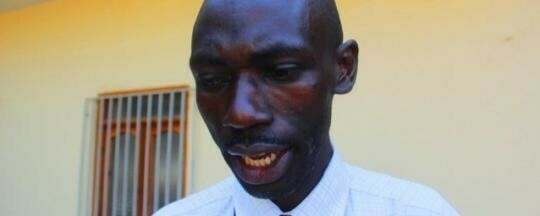In anticipation of the upcoming national elections scheduled for December 2024, the Community Empowerment for Progress Organization (CEPO) has released a report highlighting trends of violations of civic and political space. The report sheds light on actions taken by political parties’ members and leaders at the local level that directly contribute to these violations.
According to CEPO’s pre-elections domestic observation, there has been a noticeable increase in violations of civic and political space as the election date draws nearer. The organization notes that the escalation of confrontational rhetoric among political parties regarding the fate of the elections has further exacerbated this trend. Perpetrators of these violations primarily include political parties and leaders, particularly at the state and local government levels.
Over the period from January to March 2024, CEPO said it documented more than nine serious violations of civic and political space. Many of these incidents were triggered by confrontational public statements from political parties, laden with mistrust, disinformation, and hostile propaganda, particularly between the ruling SPLM and the opposition SPLM-IO.
One significant finding of the report is the conflicting interpretation of civic and political space by various political entities. Some parties are accused of seeking to monopolize these spaces, denying their opponents equal opportunities for political engagement. This unequal treatment fosters an environment of mistrust and hostility, exacerbating tensions in the lead-up to the elections.
Among the documented violations are incidents involving prominent figures such as the President of the South Sudan Union of Journalists, Patrick Oyet, who faced harassment for reporting on government activities. Additionally, youth activists from the Juunubin Chronicles Organization were unlawfully arrested by the Tiger Battalion, further stifling dissenting voices.
The report also highlights specific incidents of friction between the Sudan People’s Liberation Movement (SPLM) and the SPLM-In Opposition (SPLM-IO), including the burning of party T-shirts and restrictions on movement and political activities. Such actions not only undermine democratic principles but also pose a risk of escalating violence in the already fragile post-conflict nation, the report says.
Moreover, the CEPO report raises concerns about heightened surveillance around media and civil society offices, raising fears of censorship and intimidation. Armed individuals in unmarked vehicles add to the atmosphere of uncertainty, with suspicions of state security involvement.
The restriction of civic and political space in the context of post-conflict elections poses significant risks, as it can potentially lead to a resurgence of violence. CEPO warns that such restrictions often breed hate speech, misinformation, and a lack of trust, all of which are conducive to electoral violence.
CEPO’s observation methodology, which includes desk reviews and key informant interviews, identified several key issues. These include conflicting interpretations of civic and political space among political parties, shrinking civic and political space due to party members’ actions, and a deficit in trust and confidence among parties involved in the Revitalized Agreement on the Resolution of the Conflict in South Sudan (R-ARCSS).
Moreover, CEPO raised concerns about the increasing presence of armed individuals surveilling media and civil society offices, potentially threatening freedom of expression and assembly.
In response to these findings, CEPO offers a series of solutions aimed at addressing the identified issues. These include promoting equal standards of open civic and political space, warning political party members against restricting their opponents’ activities, and fostering trust and confidence among political parties.
CEPO urges urgent action from government authorities and political party leaders to ensure the restoration of open and free civic and political space ahead of the December 2024 elections. Failure to address these violations could undermine the democratic process and risk further instability in South Sudan.




